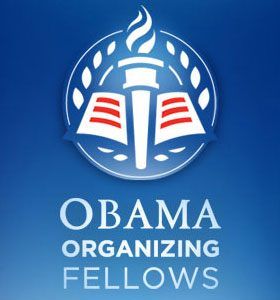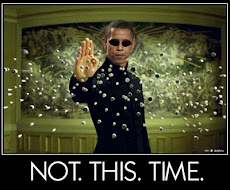Tuesday, March 25, 2014
Dorothy I. Height
In 1925 when Fannie Burroughs Height began to insist that her 13 year old daughter Dorothy begin attending women’s church leadership meetings, a seed was planted in young Dorothy’s mind which would propel her to personally ensure that the high ideals of American citizenship would become standard practice by guaranteeing rights to all. Young Dorothy would go on to win a national oratorical contest on the United States Constitution, and matriculate through undergraduate studies at NYU and post graduate degrees from NYU and Columbia.
Dorothy Height, Unsung Leader in The Civil Rights and Women’s Freedom Movements
She helped Dr. Martin Luther King Jr. organize the March on Washington and co-founded the National Women's Political Caucus with Gloria Steinem and Betty Friedan
‘Godmother of the civil-rights movement’ was a portrait in powerful change.
The gleaming portrait of Dorothy Height looming radiant and elegant and true, and yet it cannot touch the handiwork of the subject herself. Because Dorothy Height, as the original artist of a highly influential life, rendered the most beautiful cultural through-line of all.
What, for the better part of an American century, did her life not touch — in the name of civil rights and women’s rights and family support and freedoms? So often, when leadership or stewardship or just plain social “glue” was needed to buoy the movements she believed in, Dorothy Height was there.
When first lady Eleanor Roosevelt needed to be lobbied on behalf of civil rights during Harlem protests, she, young Dorothy Height the YWCA worker, was there.
When President Eisenhower needed to be urged to act on school desegregation, she, as a voice of persuasion and firsthand experience, was there.
When the Rev. Martin Luther King spoke before the Lincoln Memorial at the 1963 March on Washington, she, standing right on the platform of history, was there.
And in 1994, when President Clinton was awarding the Presidential Medal of Freedom, she — as recipient of the nation’s highest civilian honor — was there.
by Michael Cavna
When Ms. Height died , President Obama called her “the godmother of the civil rights movement and a hero to so many Americans.” Height, in the words of Obama, “devoted her life to those struggling for equality . . . witnessing every march and milestone along the way.”
After college, Dorothy Height worked as a teacher in the Brownsville Community Center, Brooklyn, New York. She was active in the United Christian Youth Movement after its founding in 1935.
In 1938, Dorothy Height was one of ten young people selected to help Eleanor Roosevelt plan a World Youth Conference. Through Eleanor Roosevelt, she met Mary McLeod Bethune and became involved in the National Council of Negro Women.
Also in 1938, Dorothy Height was hired by the YWCA. She worked for better working conditions for black domestic workers, leading to her election to YWCA national leadership. In her professional service with the YWCA, she was assistant director of the Emma Ransom House in Harlem, and later executive director of the Phillis Wheatley House in Washington, DC.
Dorothy Height became national president of Delta Sigma Theta in 1947, after serving for three years as vice president.
In 1957, Dorothy Height's term as president of Delta Sigma Theta expired, and she was selected as the president of the National Congress of Neighborhood Women, an organization of organizations. Always as a volunteer, she led NCNW through the civil rights years and into self-help assistance programs in the 1970s and 1980s. She built up the organization's credibility and fund-raising capacity such that it was able to attract large grants and therefore undertake major projects. She also helped establish a national headquarters building for NCNW.
She was also able to influence the YWCA to be involved in civil rights beginning in the 1960s, and worked within the YWCA to desegregate all levels of the organization.
Saluting Dorothy Height
Height was one of the few women to participate at the highest levels of the civil rights movement, with such others as A. Philip Randolph, Martin Luther King, jr., and Whitney Young. At the 1963 March on Washington, she was on the platform when Dr. King delivered his "I Have a Dream" speech.
Dorothy Height : Meeting Martin Luther King, Jr.
Dorothy Height traveled extensively in her various positions, including to India, where she taught for several months, to Haiti, to England. She served on many commissions and boards connected with women's and civil rights.
"We are not a problem people; we are a people with problems. We have historic strengths; we have survived because of family." - Dorothy Height
In 1986, Dorothy Height became convinced that negative images of black family life was a significant problem, and to address the problem, she founded the annual Black Family Reunion, an annual national festival.
In 1994, President Bill Clinton presented Height with the Medal of Freedom. When Dorothy Height retired from the presidency of the NCNW, she remained chair and president emerita.
Organizations:
National Council of Negro Women (NCNW), Young Women's Christian Association (YWCA), Delta Sigma Theta sorority
Papers: at the Washington, DC, headquarters of the National Council of Negro Women
By Jone Johnson Lewis
While Dorothy was diligently pursuing her education, Presidents Calvin Coolidge, Herbert Hoover and Franklin Roosevelt were privately conferring with the prominent educator Mary McLeod Bethune regarding the living conditions of women and youth in America. Ms. Bethune would become the most instrumental individual in young Dorothy’s life. First Lady Eleanor Roosevelt was a close friend of Ms. Bethune and on Ms. Bethune’s recommendation, the first lady invited a 26 year old Dorothy Height to the storied Roosevelt Hyde Park Estate to plan a world youth conference.
Beginning with Franklin D. Roosevelt, Dorothy would privately counsel 12 more US Presidents, carrying on the tradition of purposeful power and influence demonstrated by her guiding light, Ms. Bethune. Dorothy Height’s professional career would greatly increase the welfare, rights, and education for 7 generations of American women and youth. Millions have had better lives because of her tactful use of power to ensure structural progress of American government, cultural and private institutions. As a leader of the National Council of Negro Women and several of the largest national organizations pertaining to civil and human rights, Ms. Height participated in countless initiatives over her career that afforded her fellow citizens the constitutional rights that she had so eloquently described in her oratorical conquest at 16 years of age.
The celebration of Dr. Dorothy Height’s life and career was held at Shiloh Baptist Church on Thursday, April 27th. In a historical moment, leaders and dignitaries from around the globe participated in a 6 hour celebratory event titled “Seasons in the Life of Dorothy Irene Height”. The invitation only audience was welcomed by Kent Amos, Founder of the Dorothy I. Height Community Academy Charter School, DC Mayor Adrian Fenty, Delegate Eleanor Holmes Norton, and Essence Magazine’s Susan Taylor. The second section of tribute was titled “The Harlem Years” where the podium was graced by Congressman Charles Rangel, Reverend Al Sharpton, and The Honorable William Jefferson Clinton.
The third section was titled “Women’s and Human Rights Advocacy”, which included remarks from Ann Stallard, Chair of United Way of America and a brilliant musical selection by Stevie Wonder. The fourth section was titled “Civil Rights: The Freedom Trail” which featured remarks by Vernon Jordan, Congressman John Lewis, daughter of Dr. Martin Luther King Minister Bernice A. King, Andrew Young, and Jesse Jackson.
Cicely Tyson performed a tribute to Mary Mcleod Bethune which opened the fifth and final section of the tribute titled “The National Council of Negro Women Years” which featured remarks from Jeffrey Thompson of Chartered Health, Vivian Pickard of the General Motors Foundation, Ingrid Jones of the Coca Cola Foundation, Marian Wright Edelman of the Children’s Defense Fund and Dr. Johnetta Cole of the Smithsonian National Museum of African Art. Closing remarks were made by Secretary of State Hillary Clinton and Dr. Height’s close confidant, former US Secretary of Labor Alexis Herman.
The following morning, on order of the President of the United States Barack Obama, flags flew at half staff as the leaders of government, industry, culture, and community shared the National Cathedral with family, friends and colleagues of Dr. Height. Speaker of the House Nancy Pelosi, Senate Majority Leader Harry Reid, US Senator Roland Burris, and Vernon Jordan were in attendance. After everyone was seated, President Obama, the First Lady of the United States Michelle Obama, and Vice President Joe Biden entered the Cathedral and took their places in the front row. The crowd was welcomed by Reverend Samuel T. Lloyd III, Dean of Washington National Cathedral and the service was presided over by Bishop Vashti McKenzie. Dr. Maya Angelou and Dr. Camille Cosby reflected on Ms. Heights influence. Mezzo Soprano Denyce Graves gave the performance of a lifetime, and vocalist Al Johnson accompanied by harpist Jeff Majors enraptured the attendees in a fashion that would have made Dr. Height proud. President Obama delivered a eulogy that was a fitting tribute to the glorious life of Dorothy Height.
The tears that President Obama shed which were the only tears we have seen since the passing of his grandmother. We who were present in the National Cathedral did not weep out of sorrow, we were moved to tears by the brilliance of Dorothy Height and what she represented and worked for.
“To move forward, we have to look at the world as it is becoming rather than how it has been. We have to see how we have to stretch ourselves to become related to this ever changing scenery. We have to gain recognition not only that no one stands alone, but on a positive side, that we also need each other… In the long run, it is how we relate to each other and how well we work together that will make the deciding difference” Dorothy Irene Height – March 24, 1912 – April 20, 2010
Dorothy Height Interviewed by Julian Bond: Explorations in Black Leadership Series
Dr. Dorothy Height Receives the W.C. Handy Humanitarian Award- Black Gold Awards 1987
Queen Mother Dorothy Height
Subscribe to:
Posts (Atom)














































